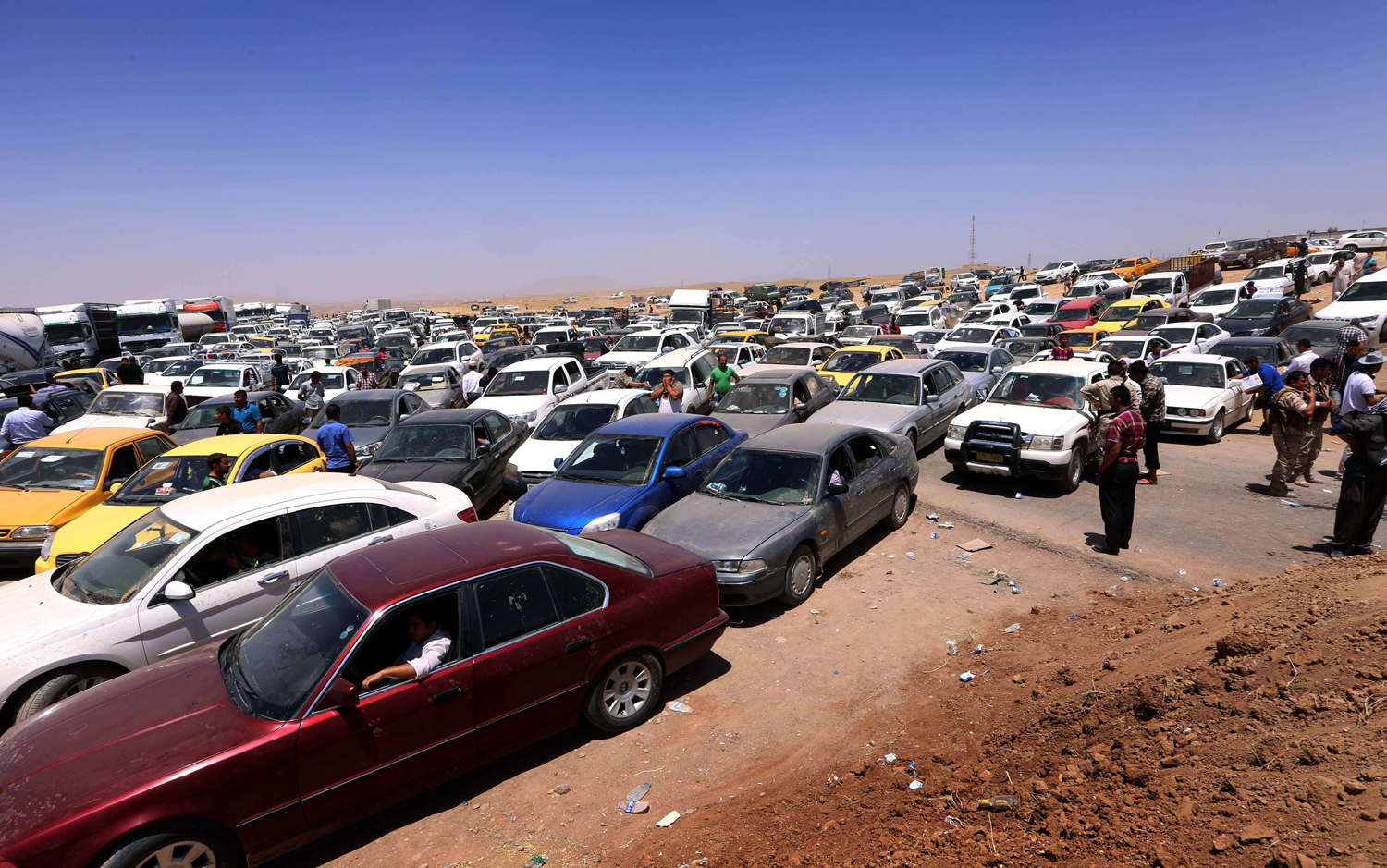
The fall of Iraq’s second largest city to Islamist extremists Tuesday sends an alarming message about the deterioration of a country where the U.S. spent eight years, 4,500 lives and $1.7 trillion. Mosul, a city of 1.8 million located in the far north of the country, long cultivated a reputation as a military town. But Iraqi soldiers threw down their guns and stripped off their uniforms as the insurgents approached on Tuesday, according to officials stunned by the collapse of its defenses.
“When the battle got tough in the city of Mosul, the troops dropped their weapons and abandoned their posts, making it an easy prey for the terrorists,” Osama Nuajaifi, the speaker of Iraq’s parliament who hails from Mosul, said during a news conference in Baghdad. “Everything is fallen. It’s a crisis. Having these terrorist groups control a city in the heart of Iraq threatens not only Iraq but the entire region.”
The fall of Mosul after only four days of fighting speaks volumes about both the state of Iraqi forces and the depth of the sectarian division at the bleeding heart of the nation’s ongoing crisis: the population of Mosul is mostly Sunni, and the central government led by Prime Minister Nouri al-Maliki is widely criticized as favoring the country’s Shi‘ite majority. Al-Maliki is likely to remain in office after the April 30 elections left him with the largest share of votes and negotiating chiefly with other Shi‘ite parties to form a new governing coalition.
The insurgents — who raised black flags over parts of the city on Tuesday — are Sunni extremists known as the Islamic State of Iraq and Syria (ISIS), a group al-Qaeda disowned as too extreme.
“Iraq is undergoing a difficult stage,” al-Maliki said at a televised news conference, after asking parliament to declare a state of emergency. The Premier confirmed that militants controlled much of Mosul, and that soldiers had deserted their posts. News reports said militants had overrun the airport, gaining access to military helicopters, and had cranes moving blast walls — erected as protection against terrorist car bombs — to reinforce their positions and block roads against a counterattack. Police stations had been overrun and set afire, and the doors of at least one jail flung open: the Associated Press quoted residents who saw prisoners running down the street still wearing their yellow jump suits.
Terrified residents were streaming out of the city — the International Organization for Migration reports 500,000 people have left their homes since Saturday — and there were reports that water and electricity were cut off. On its Twitter account, ISIS gloated about seizing arms and vehicles abandoned by the city’s supposed defenders. Elsewhere in the country, its fighters have been spotted driving humvees captured from government forces in previous encounters.
The situation was dire in more ways than one. Besides its symbolic importance as Iraq’s second largest city — and the historic home of the country’s oil industry — Mosul has crucial strategic significance. It sits near both Turkey and the largely autonomous Kurdish zone of northern Iraq, but most important, it functions as Iraq’s most prominent doorway to Syria, where ISIS emerged as one of the main rebel forces arrayed against Syrian President Bashar Assad.
Led by an Iraqi, ISIS has ranged freely across an international border that separates the countries far more on maps than in reality. The conflicts raging in both Syria and Iraq are grounded in sectarian identities — Sunni vs. Shi‘ite — that have in crucial ways overridden national identities. The terms of the ancient conflict steepen the challenge Baghdad faces in subduing the insurrection that currently has divided Iraq between east and west. ISIS and its Sunni allies control much of Anbar province, including portions of Ramadi and much of Fallujah, which lay due west of the capital. Mosul, though also home to Shi‘ite and Kurdish populations, remained restive for most of the U.S. occupation, and was a battleground between al-Maliki’s troops and forces associated with al-Qaeda as recently as 2008, when the Premier promised a “decisive” battle for the city.
On Tuesday, al-Maliki was preparing again. Despite warnings from analysts that the insurrection was at heart a political problem that might only be worsened by a heavy-handed military response, al-Maliki announced his government had created a Crisis Unit and was preparing a counteroffensive that, according to one report, would include civilian volunteers armed by his government. Nuajaifi, the parliament speaker, warned, “They will reach every corner of Iraq if it doesn’t stop.”
More Must-Reads from TIME
- Cybersecurity Experts Are Sounding the Alarm on DOGE
- Meet the 2025 Women of the Year
- The Harsh Truth About Disability Inclusion
- Why Do More Young Adults Have Cancer?
- Colman Domingo Leads With Radical Love
- How to Get Better at Doing Things Alone
- Michelle Zauner Stares Down the Darkness
Contact us at letters@time.com